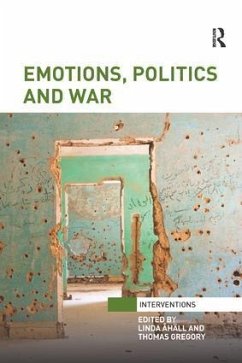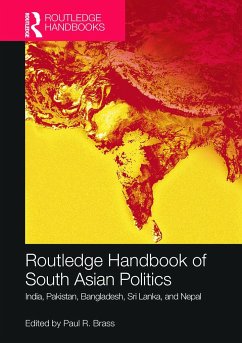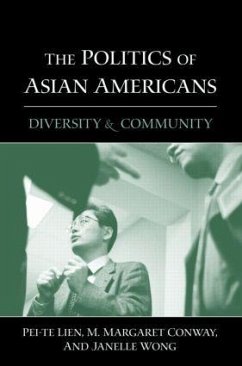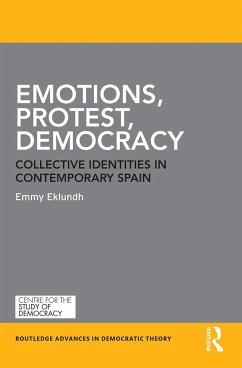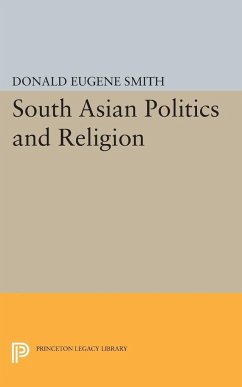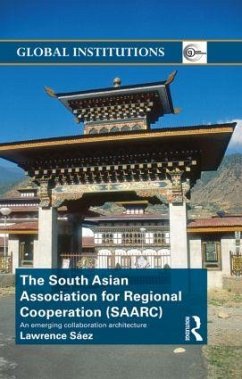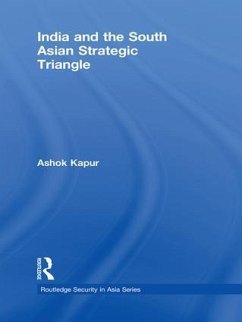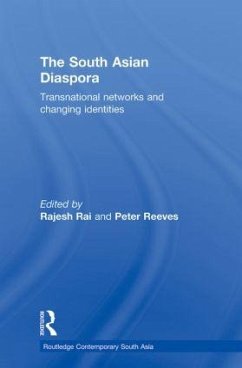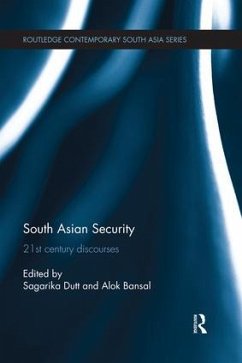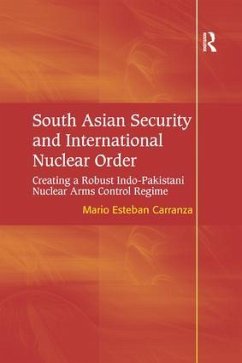
Emotions, Mobilisations and South Asian Politics
Versandkostenfrei!
Versandfertig in 1-2 Wochen
55,99 €
inkl. MwSt.

PAYBACK Punkte
28 °P sammeln!
This book highlights the role of emotions in the contentious politics of modern South Asia. It brings new methodological, theoretical and empirical insights to the mutual constitution of emotions and mobilisations in India, Pakistan and Bangladesh. As such, it addresses three distinct but related questions: what do emotions do to mobilisations? What do mobilisations do to emotions? Further, what does studying emotions in mobilisations reveal about the political culture of protest in South Asia?The chapters in this volume emphasise that emotions are significant in politics because they have the...
This book highlights the role of emotions in the contentious politics of modern South Asia. It brings new methodological, theoretical and empirical insights to the mutual constitution of emotions and mobilisations in India, Pakistan and Bangladesh. As such, it addresses three distinct but related questions: what do emotions do to mobilisations? What do mobilisations do to emotions? Further, what does studying emotions in mobilisations reveal about the political culture of protest in South Asia?
The chapters in this volume emphasise that emotions are significant in politics because they have the power to mobilise. They explore a variety of emotions including anger, resentment, humiliation, hurt, despair, and nostalgia, and also enchantment, humour, pleasure, hope and enthusiasm. The interdisciplinary research presented here shows that integrating emotions improves our understanding of South Asian politics while, conversely, focusing on South Asia helps retool current thinking on the emotional dynamics of political mobilisations. The book offers contextual analyses of how emotions are publicly represented, expressed and felt, thus shedding light on the complex nature of protests, power relations, identity politics, and the political culture of South Asia.
This cutting-edge research volume intersects South Asian studies, emotion studies and social movement studies, and will greatly interest scholars and students of political science, anthropology, sociology, history and cultural studies, and the informed general reader interested in South Asian politics.
The chapters in this volume emphasise that emotions are significant in politics because they have the power to mobilise. They explore a variety of emotions including anger, resentment, humiliation, hurt, despair, and nostalgia, and also enchantment, humour, pleasure, hope and enthusiasm. The interdisciplinary research presented here shows that integrating emotions improves our understanding of South Asian politics while, conversely, focusing on South Asia helps retool current thinking on the emotional dynamics of political mobilisations. The book offers contextual analyses of how emotions are publicly represented, expressed and felt, thus shedding light on the complex nature of protests, power relations, identity politics, and the political culture of South Asia.
This cutting-edge research volume intersects South Asian studies, emotion studies and social movement studies, and will greatly interest scholars and students of political science, anthropology, sociology, history and cultural studies, and the informed general reader interested in South Asian politics.





